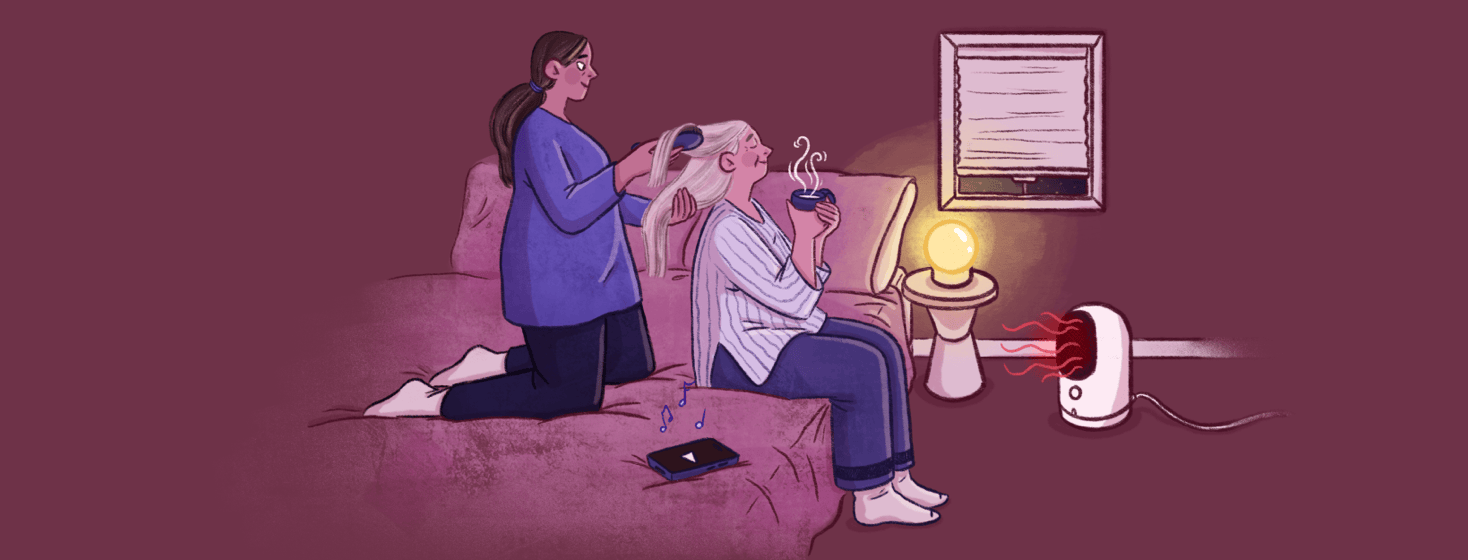How to Keep a Loved One With Alzheimer's in Bed at Night
Sundown can so often be a problematic time for people with Alzheimer's. As darkness sets in, their confusion may increase, and along with it, their feelings of agitation and aggression.
For caregivers, this time of day can present the biggest challenge as they try to help their loved ones settle down and get ready for bed. If the evening has been upsetting, it can be a huge struggle for someone with Alzheimer's to stay in bed at night.
To find out more about how care partners of people with Alzheimer's help their loved ones sleep through the night, we reached out to the AlzheimersDisease.net Facebook community. We asked: "What strategies have worked to keep a loved one in bed throughout the night?"
Nearly 50 caregivers in the community responded. Here is what was shared.
Limit daytime naps
Several caregivers mentioned that daytime naps can throw off their loved one's ability to sleep at night. They shared that a small nap of around 20 minutes can be OK, but any longer tends to be problematic. Others mentioned that giving their loved one small tasks that require a degree of physical effort can help tire them out and make them more ready for sleep.
"If they nap during the day, try to limit it."
"Limit daytime sleep to catnaps of an hour or less. If possible, keep them active during the day with simple tasks like helping fold laundry or going for short walks."
Set a bedtime routine
Everyone sleeps better when going to bed at roughly the same time every evening. Your body gets into a rhythm.
For a person with Alzheimer's, routine is even much more important. It can also help decrease aggression and agitation. Having a routine every night with the same calming activities increases the odds that your loved one will accept without a fight that it is bedtime.1
"Have a set time and bedtime routine."
"I would brush my mom's hair to relax her before she went to bed. I would also make chamomile tea with a little honey or a small cup of warm milk to help her sleep."
Control the environment
The more you can create a peaceful and soothing environment, the better. Caregivers mentioned paying attention to anything sensory, from dimming the lights around sundown to creating a dark environment in the bedroom.
Sounds matter as well. Soothing music and white noise can do wonders to help someone get ready for bedtime as well as sleep through the night without getting upset.
"Blinds closed. White noise."
"I discovered that turning on a heater would lull mom to sleep. It has a timer, so I would set it to turn off after an hour. The warmth and white noise made momma sleepy."
Try sleep medicines or sleep aids
If a mix of the above tips does not seem to be enough, it might be time to talk to your loved one's doctor about drugs or sleep aids. A few members of the community shared that they turned to medicine – some relied on prescription drugs, whereas others found over-the-counter sleep aids that worked.
"A 10-milligram pill of melatonin."
"Talk to your doctor about medication. My brother did. His doctor worked with him to get the medication correct for his wife. They found the right medication and dose, and she stayed in bed."
"CBD [cannabidiol] oil 30 minutes before bedtime."
Do not forget sleep aids for you
Several caregivers also shared how important it is that they get to sleep, too. They mentioned how helpful it is to have a supply of sleep aids available for those nights when you struggle to fall asleep. After all, when you have a good night of sleep, you are much better prepared to take care of your loved one and yourself.
"Melatonin gummies every now and then when I am tired. I need to rest, too."
"CBD gummies help me fall and stay asleep."
Thank you
We want to say thank you to everyone who shared this story. We greatly appreciate hearing from so many active and supportive caregivers.

Join the conversation